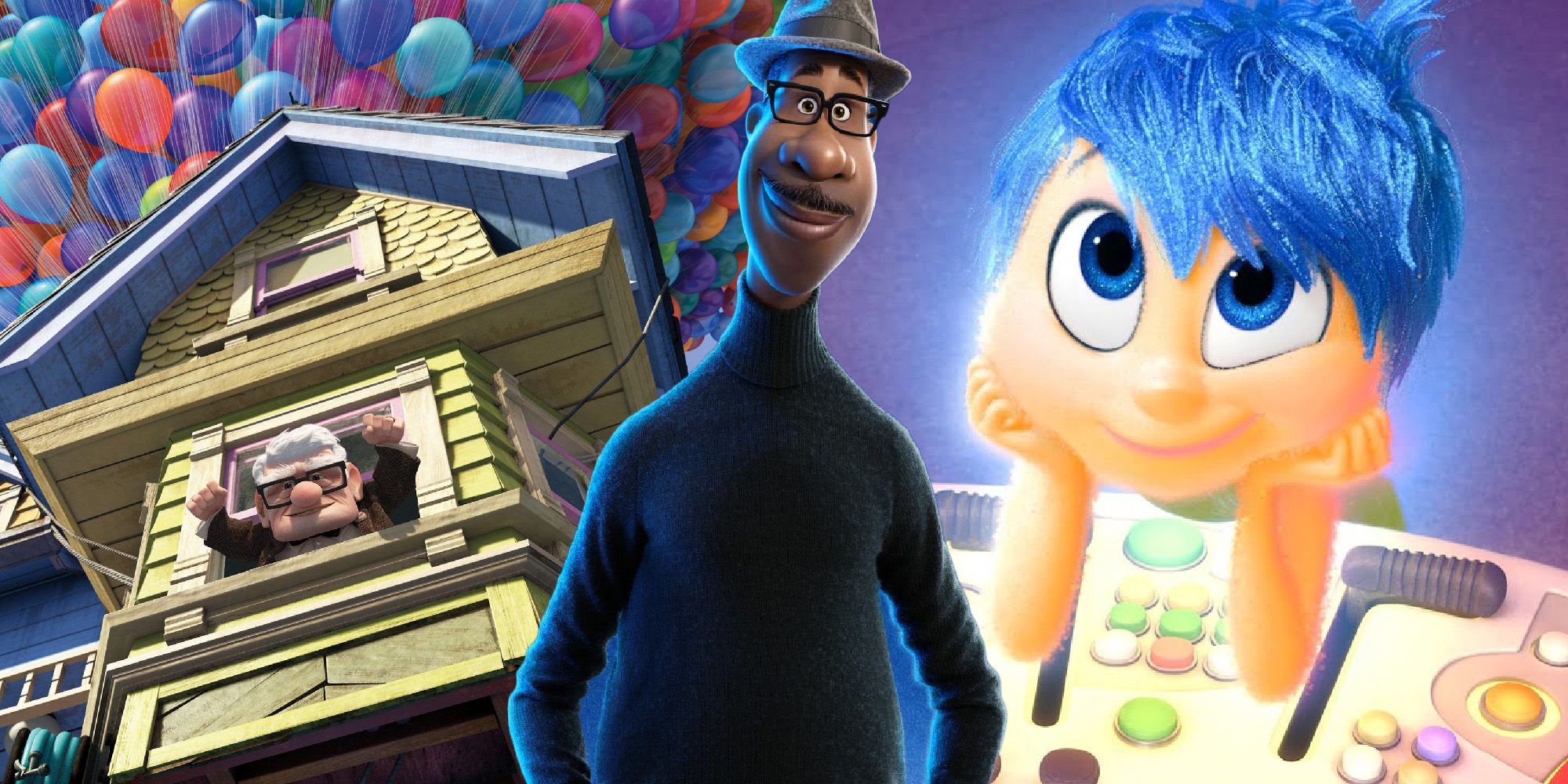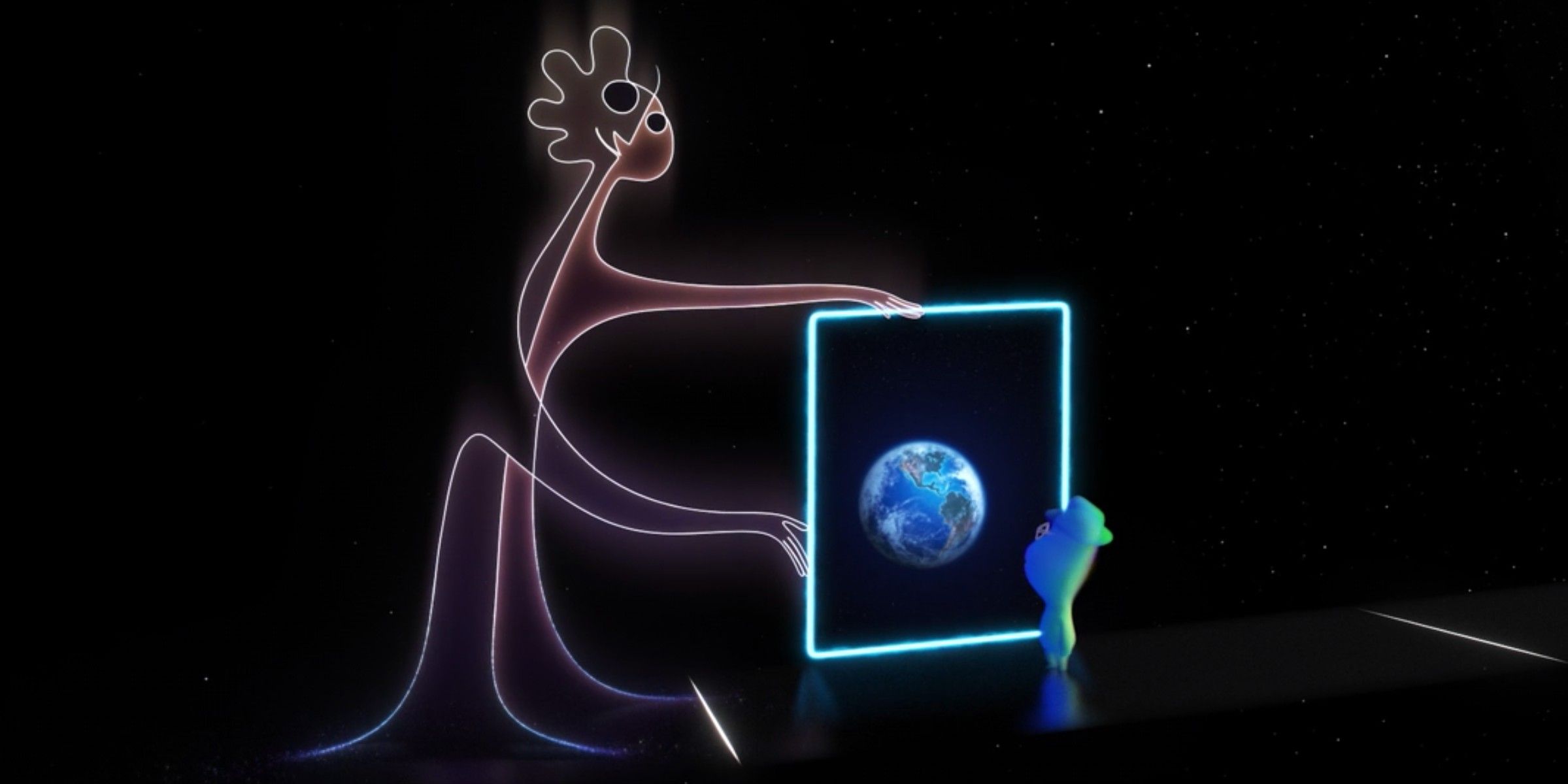
Soul's eye-catching animation comes with an engaging premise and talented cast, but its story fails to match the quality of Pixar's two biggest critical successes - 2009's Up and 2015's Inside Out. Over the past 20 years, the two animated movies have earned critical acclaim and left audiences in tears, representing peak performance for the studio. Like the best Pixar movies, the films appealed to both children and adults and left people thinking about a deeper message. Although Soul tries to do the same, its narrative is not as well-structured and it doesn't offer the same emotional punch.
Soul follows band teacher Joe Gardner (Jamie Foxx) as he tries to fulfill his lifelong dream of becoming a jazz musician on the stage. Just as Joe gets his big break, however, he suffers an accident that leaves his body on Earth and his soul on the path to the Great Beyond. In an act of rebellion, Joe declares that he can't die now and escapes to the Great Before, where he meets uninspired soul 22 (Tina Fey). Together, the two travel to Earth, where Joe begins to realize that (maybe) his dream to become a jazz musician is not the singular purpose of his life. Reflecting on 22's approach to life, Joe discovers that a soul's spark can come from everyday moments of happiness. Joe returns to the Great Before to offer 22 a chance at life on Earth, inspiring the guardians to give Joe a second chance at life himself.
Joe's journey in Soul continues Pixar's tradition of examining the nature of life, meaning, and mortality, but it lacks the concrete resolutions seen in Up and Inside Out. While those two films build to a singular climax in the action and leave viewers with an understanding of how the characters have changed, Soul continues to explore complex plot events during the last few minutes of the film. The movie gives Joe several different moments of epiphany, leaving audiences unsure about when his story ends and the lessons he's learned. Soul also overlooks a major opportunity to explore the narratives of Black characters by setting most of the movie in an ephemeral realm and focusing more on culture than conflict. The movie has powerful ideas, aiming to examine the human soul and showcase a mainly Black cast, but its execution is a letdown.

As a triple feature, Up, Inside Out, and Soul may be the perfect trio. All three explore the meaning of life, but at different stages. While Up focuses on senior citizen Carl Fredricksen's attempt to fulfill his wife's dying wish, Inside Out focuses on the upheaval of 11-year-old Riley's home life during preadolescence. Soul also centers around a period of change in the main character's life, this time with a man in possibly his 30s or 40s struggling to pursue his dreams, a story familiar to many.
The problem with Soul is that it tries to do too many things at once. Unlike Up and Inside Out, which focus entirely on the main characters, using supporting voices only as contrast or comic relief, Soul introduces 22, who has her own struggle and story. Soul 22 is a compelling character, but audiences don't have the same investment in her life as they do Joe's, and the resolution of her journey doesn't fit neatly into the main story. In a slightly muddled conclusion, Soul ends with a tradeoff between 22 and Joe, with Joe sacrificing his place on Earth just as he realizes the true meaning of life, only to later experience a last-minute rescue from the Great Beyond and get a second, second chance. The film's strong suite of supporting characters is a double-edged sword - the characters have depth but distract from the main narrative. Ideally, Joe's friends and family would be a larger part of his story, making it a true ensemble film.
Soul has a looser narrative structure than Up or Inside Out, abruptly jumping between the real world and the Great Beyond, creating scenes that don't always connect to the larger story or form a coherent whole. Inside Out used animation of vague concepts like emotions to underline Riley's struggle in life, with events in Headquarters paralleling and clarifying events in reality. Soul, on the other hand, set much of Joe's story inside an otherworldly realm, making the story too conceptual to effectively reach the audience. One of Pixar's greatest strengths is connecting symbols like Ellie's merit badge (Up), or the melding of Joy and Sadness (Inside Out) to the emotions and changes the characters experience. Soul upsets that balance by going too far into the unknown.
from ScreenRant - Feed https://ift.tt/38PgLHD





No comments: